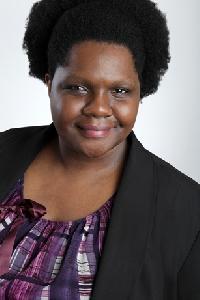| Pages in topic: < [1 2] | Are children really better at foreign language learning?
|
|---|
| | Nicole Schnell 
United States
Local time: 17:03
English to German
+ ...
In memoriam | One more aspect | Sep 19, 2013 |
Other than adults, children lack the social filter called "embarrassment". They will blurt out any new foreign word they just heard without holding back. Try this as an adult... If a child asks for leeches instead of leeks at the grocery store, everyone will smile with delight. To an adult, this would mean social suicide (this was a real-life example).
Edited for typo
[Edited at 2013-09-19 21:45 GMT]
| | | | | I would be curious to know | Sep 19, 2013 |
If learning another language as a child influences language learning as an adult. I lived on a US army base in Germany until I was about 5 years old. All of my friends only spoke German and I really only spoke English at home with my parents. My first words were even in German (from what they tell me, my memory is a little fuzzy).
Unfortunately, I've lost nearly all of my German over the years; however when I was 19 I moved to Argentina and was completely immersed in the Spanish la... See more If learning another language as a child influences language learning as an adult. I lived on a US army base in Germany until I was about 5 years old. All of my friends only spoke German and I really only spoke English at home with my parents. My first words were even in German (from what they tell me, my memory is a little fuzzy).
Unfortunately, I've lost nearly all of my German over the years; however when I was 19 I moved to Argentina and was completely immersed in the Spanish language. I picked it up pretty quick and it has been my dominant language ever since (7 years now). When I first started speaking Spanish, I was told that I had a strong German accent, however now I'm told that I have an Argentine accent. When I worked as a phone interpreter, I was constantly mistaken for a native Spanish speaker. There were a few who caught my gringo-ness, but they also went out of their way to compliment my command of the language and accent.
Additionally, I recently had to take an Into to Spanish course in my university as part of my degree program. I was really impressed with the professor and how quickly and easily she was able to teach the basics of the language to people with no previous knowledge. They could actually carry on real conversations in Spanish by the end of the 4 month course.
Clearly there are other factors that influence language learning, and I would be curious to know how much weight each one carries. ▲ Collapse
| | | | | Person unclear on the concept | Sep 20, 2013 |
Kirsten Bodart wrote:
2. Can you accept things are different?
Yes I can, but one exception stands out. Does anything strike you as odd about these German telephone numbers: 030 4 61 70 73 and 030 86 42 12 21? For quite a long time I was driven to distraction by the fact that each contains a different number of digits. I just couldn't get free of the idea that one of them had too many or the other too few.
The reason for this is of course that all of the telephone numbers I had ever seen were those in the United States, which always have exactly the same numer of digits each. Enlightenment struck one day whilst I was meditating under a Bhodi tree: not all telephone numbers need to contain number of digits—duh.
| | | | Kay Denney 
France
Local time: 02:03
French to English
Yes, definitely.
My kids have grown up multi-culti and can very easily absorb new languages.
They know that different languages do things different ways and so just get on with finding out what is different.
So you grew up speaking German and this affected your accent when you speak other languages?
My French is good enough for people not to twig that I'm a foreigner (or they can't quite put their finger on what it is that is bizarre about how I spe... See more Yes, definitely.
My kids have grown up multi-culti and can very easily absorb new languages.
They know that different languages do things different ways and so just get on with finding out what is different.
So you grew up speaking German and this affected your accent when you speak other languages?
My French is good enough for people not to twig that I'm a foreigner (or they can't quite put their finger on what it is that is bizarre about how I speak). Then if I have to say something in Spanish or German I have an incredible English accent and they all fall about laughing.
Finally, I've hit on a way to tell what someone's "true native" language is!!! Must tell ProZ! ▲ Collapse
| | |
|
|
|
LEXpert 
United States
Local time: 19:03
Member (2008)
Croatian to English
+ ...
Triston Goodwin wrote:
If learning another language as a child influences language learning as an adult.
I think it does. I was raised in the US, but spoke Croatian as a first language until age 6, and thereafter continually as a second language. At age 15 (which I think we can consider an adult learner for practical purposes), I started learning German in high school. My classmates often struggled to master specific prepositions (warten auf vs. waiting for, etc.), but I found them rather easy to learn because the use of specific prepositions between German and Croatian was quite closely aligned. More generally, I was already familiar with the concept of cases and inflections, so that also made things easier.
| | | | | Adults have to do more in less time | Sep 21, 2013 |
Helena Chavarria wrote:
It takes four years to speak any language like a four-year-old, 15 years to speak like a 15-year-old, and so on.
A 25-year-old adult can't learn 25 years of any language in only a couple of years.
It's simple, the younger you start, the less you need to learn and the more time you have to do it.
If a six-year-old comes out with 'big', 'little', fat', 'thin', 'happy', 'sad', and short sentences, they're doing very well, but I doubt many adults would be satisfied with speaking like a six-year-old!
I personally belieive it to be a myth. I think you can easily, some people, learn some languages to full fluency (of course you won't know all the words -- no one does, in any language) in about 4-5 years, especially if you are emerged in this language.
| | | | Diana Obermeyer 
United Kingdom
Local time: 01:03
Member (2013)
German to English
+ ...
| easier to provide the right environment, exposure | Sep 22, 2013 |
I would say this will depend a lot on "how" you learn. The "Wow! A telephone book! Can I learn it by heart?!?" - type will probably not see much of a difference throughout their life.
That is not something I have ever been good at. I understand systems, concepts and context - and then fill in from there. So I can quickly learn the grammatical structure of a language, but hand me a vocabulary list and I am lost. As a teenager, I was almost buried in awards for my foreign language sk... See more I would say this will depend a lot on "how" you learn. The "Wow! A telephone book! Can I learn it by heart?!?" - type will probably not see much of a difference throughout their life.
That is not something I have ever been good at. I understand systems, concepts and context - and then fill in from there. So I can quickly learn the grammatical structure of a language, but hand me a vocabulary list and I am lost. As a teenager, I was almost buried in awards for my foreign language skills, both in Germany and in Australia, yet I regularly failed vocabulary tests at school. This is maybe where this idea of "being good at languages *or* at maths" comes from. I know maths/sciences/finance etc have a system, I learn the system, everything else follows logically. I would never remember a formula, but I can work out pretty quickly what it should be. I think in structures. So in a regular language learning environment, I probably would have been a complete failure.
I grew up tri-lingual. German and Spanish at home, German in everyday life and German and English at a bilingual school with native English language assistants and regular student exchanges to the UK, as well as a full year at an Australian high school. The second half of my life is the reverse, I live in the UK with regular contact to Germany. Throughout my life, I have always been in environments, were both languages were needed.
I would speak Spanish at home and on holiday, took Spanish lessons from age 11 to 19 and spent a year in South America, though I had far less academic/ professional or other *high level* exposure and that shows in the way I speak Spanish.
So it was less of "learning" the language, but simply communicating in different languages with different people.
I am very "local". After spending some time in an area, I adopt the accent. So I fail miserably in a typical "learning a language environment" as I only really learn in context. Living in the relevant country for some time, however, is an aspect that becomes increasingly difficult as an adult. I do work out pretty quickly, how to order a taxi or buy a meal, when on holiday. So I can make the connection between the action and the words. Far fetched artificial situations in a text book are not really a valid substitute. In my languages, I automatically have context, as I understand the sentence(s) around an unknown term and this is how I remember words - relative to their context, not as a direct equivalent. That is something I can always look up.
But being an adult that needs to spend most of her time earning money, I am limited in the amount of time I can spend holidaying and "creating" the necessary interaction and building the environment in which I learn well. It is much easier to expose children to different languages than it is to have this multiple exposure as an adult.
Another aspect is that as a child, you can often sense what you are being asked/told without understanding the words. Then you can relate that back to the words that were applied. You are constantly exposed to new words and new concepts and it is natural to take these in. I would say that there is little difference, whether this happens in one language or in several. You are simply developing your stock of vocabulary. And other kids are great teachers and think it natural to teach you the words used in a game, explain things to you and correct you. I don't think you get the same level of feedback from your associates as an adult, even if you go to live in the country where that language is spoken, as we tend to just "accept" that foreigners speak the language poorly.
So I wouldn't necessarily say that children are *better*, but that it is easier to provide an appropriate learning environment for children than it is to create this as an adult. ▲ Collapse
| | | | Ty Kendall 
United Kingdom
Local time: 01:03
Hebrew to English
dianaft wrote:
So I wouldn't necessarily say that children are *better*, but that it is easier to provide an appropriate learning environment for children than it is to create this as an adult.
...which probably accounts for much of the anecdotal evidence of children being "better" from superficial observations and ill-suited comparisons to adults.
| | |
|
|
|
Nicole Schnell wrote:
Other than adults, children lack the social filter called "embarrassment". They will blurt out any new foreign word they just heard without holding back. Try this as an adult... If a child asks for leeches instead of leeks at the grocery store, everyone will smile with delight. To an adult, this would mean social suicide (this was a real-life example).
Edited for typo
[Edited at 2013-09-19 21:45 GMT]
I've been teaching English as a foreign language for many years and what Nicole says is true. I've also discovered that extrovert and open-minded people usually learn quicker.
Also people who aren't particularly talkative in their own language find it a lot more difficult to 'take the plunge' and speak in a foreign language.
I often have a younger sister or brother who comes to class with the older sibling and, more often than not, the younger ones start speaking first.
| | | | inkweaver 
Germany
Local time: 02:03
French to German
+ ...
Helena Chavarria wrote:
I've also discovered that extrovert and open-minded people usually learn quicker.
Are you trying to imply that introvert people are necessarily narrow-minded?
| | | | | I'll reword my comment | Sep 23, 2013 |
inkweaver wrote: Helena Chavarria wrote:
I've also discovered that extrovert and open-minded people usually learn quicker.
Are you trying to imply that introvert people are necessarily narrow-minded?
I'm not implying anything of the sort. Perhaps I should have worded my comment differently, 'I've also discovered that there are two groups of people who learn languages quicker: extroverts and open-minded people'.
I'm British and I have been married to my Spanish husband for 34 years. He's not particularly talkative and, after all these years, he hardly speaks a word of English, let alone a sentence!
Last year I was talking to my youngest grandchild, who was then two and a half years old, and I said to him, 'Look, there's a train'.
He replied, 'No, es un tren'. It turned into a game with me insisting it was a train, and he telling me it was a 'tren'. It will be interesting to see what sort of character he has when he grows up.
| | | | | Agreed - Adults have to do more in less time | Sep 23, 2013 |
LilianBNekipelo wrote: Helena Chavarria wrote:
It takes four years to speak any language like a four-year-old, 15 years to speak like a 15-year-old, and so on.
A 25-year-old adult can't learn 25 years of any language in only a couple of years.
It's simple, the younger you start, the less you need to learn and the more time you have to do it.
If a six-year-old comes out with 'big', 'little', fat', 'thin', 'happy', 'sad', and short sentences, they're doing very well, but I doubt many adults would be satisfied with speaking like a six-year-old!
I personally belieive it to be a myth. I think you can easily, some people, learn some languages to full fluency (of course you won't know all the words -- no one does, in any language) in about 4-5 years, especially if you are emerged in this language.
I agree with this completely - it doesn't take that long for adults when learning languages. Sure, it takes time to build confidence and fluency, but it is not parallel to the learning processes of a child. For instance, as an adult you will normally only be learning the specific words, rather than the definitions, because you will usually already know definitions from your native language. It would also be pretty frustrating if you started learning a language at age 30 and were still being spoken to like a 4-year old child at age 34. Sure, it takes time and effort to learn languages, but children and adults learn differently, primarily (in my opinion) because children are not restricted to simply learning the language - they are pretty much learning everything from fine motor control to bladder control.
| | |
|
|
|
Kay Denney 
France
Local time: 02:03
French to English
| trains and vans | Sep 23, 2013 |
Helena Chavarria wrote:
Last year I was talking to my youngest grandchild, who was then two and a half years old, and I said to him, 'Look, there's a train'.
He replied, 'No, es un tren'. It turned into a game with me insisting it was a train, and he telling me it was a 'tren'. It will be interesting to see what sort of character he has when he grows up.
I had the same conversation with my son at something like the same age, except it was a van
| | | | Lingua 5B 
Bosnia and Herzegovina
Local time: 02:03
Member (2009)
English to Croatian
+ ...
| Pronunciation | Sep 23, 2013 |
I think they can master pronunciation easier and better in their age, as their linguistic brain and speech organs are in "developing phase".
I've seen kids by foreign parents in foreign countries in foreign schools still reporting they prefer watching cartoons in their parents' language where they can pick nuances better, especially if parents are using the native language at home or socialize in their native language for the most part. There are many factors at play (also emotional... See more I think they can master pronunciation easier and better in their age, as their linguistic brain and speech organs are in "developing phase".
I've seen kids by foreign parents in foreign countries in foreign schools still reporting they prefer watching cartoons in their parents' language where they can pick nuances better, especially if parents are using the native language at home or socialize in their native language for the most part. There are many factors at play (also emotional ones) when it comes to what language will take over the dominant role. ▲ Collapse
| | | | | Pages in topic: < [1 2] | To report site rules violations or get help, contact a site moderator: You can also contact site staff by submitting a support request » Are children really better at foreign language learning? | Protemos translation business management system | Create your account in minutes, and start working! 3-month trial for agencies, and free for freelancers!
The system lets you keep client/vendor database, with contacts and rates, manage projects and assign jobs to vendors, issue invoices, track payments, store and manage project files, generate business reports on turnover profit per client/manager etc.
More info » |
| | TM-Town | Manage your TMs and Terms ... and boost your translation business
Are you ready for something fresh in the industry? TM-Town is a unique new site for you -- the freelance translator -- to store, manage and share translation memories (TMs) and glossaries...and potentially meet new clients on the basis of your prior work.
More info » |
|
| | | | X Sign in to your ProZ.com account... | | | | | |















